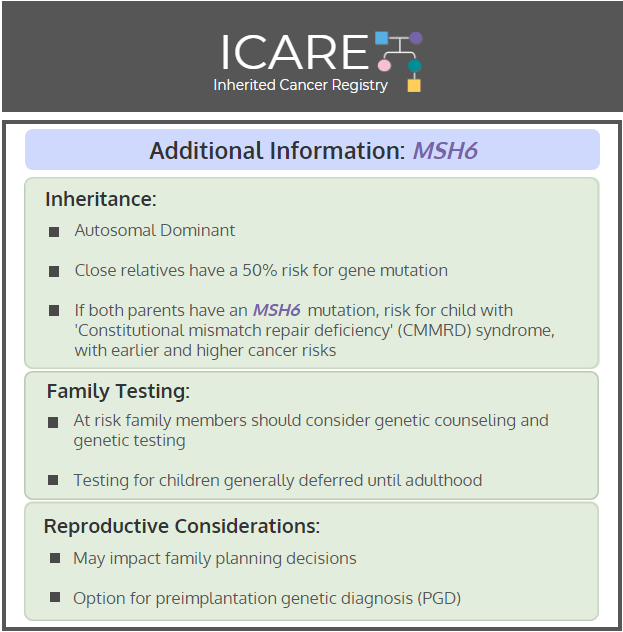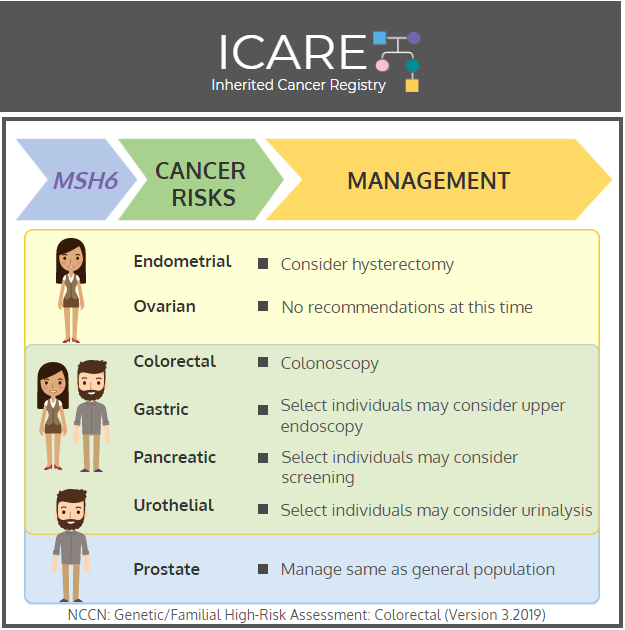
 Gene: MSH6
Gene: MSH6
Cancer Risks and Management (per NCCN version 3.2019):
Women:
Endometrial cancer risk: 17%-46% – Consider risk-reducing hysterectomy.
Ovarian cancer risk: 1%-11% – Evidence is insufficient to make specific recommendations.
Men and Women:
Colorectal cancer risk: 15%-44% – Recommend colonoscopy every 1-2 years starting at age 20-25.
Gastric cancer risk: 0%-5% – Consider upper endoscopy every 3-5 years beginning at age 40 for select MSH6 carriers (see NCCN for details).
Pancreatic cancer risk: Not well established – Consider MRI/MRCP or endoscopic ultrasound for MSH6 carriers with a family history of pancreatic cancer in first-degree relative.
Urothelial cancer risk: 0.2%-7% – Consider urinalysis annually starting at age 30-35 for MSH6 carriers with a family history of urothelial cancer.
Men:
Prostate cancer risk: Elevated at 0%-5% – Manage same as general population
Inheritance: Autosomal dominant, thus parents, full siblings, and children have a 50% risk for the gene mutation. If both parents have an MSH6 mutation, the child is at risk for autosomal recessive ’Constitutional mismatch repair deficiency’ (CMMRD) syndrome with earlier and higher cancer risks.
Family Testing: At-risk family members should consider genetic counseling and genetic testing. For adult-onset conditions, recommend waiting to perform genetic testing on minors are at least 18 years old.
Reproductive Considerations: Option for preimplantation genetic diagnosis (PGD) may be available to ensure future generations do not inherit the known gene mutation. PGD is a procedure available for certain gene mutations to screen the embryo prior to achievement of pregnancy.
Check out the full management guidelines by creating a FREE account at https://www.nccn.org/professionals/physician_gls/pdf/genetics_colon.pdf and https://www.nccn.org/professionals/physician_gls/pdf/genetics_bop.pdf
